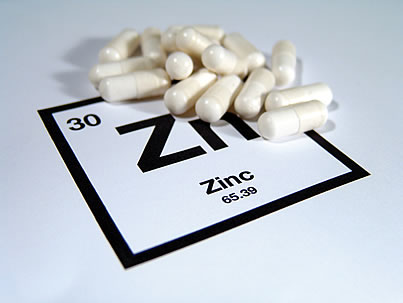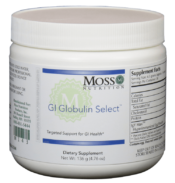Podcast: Play in new window | Download (Duration: 23:02 — 10.9MB) | Embed
Subscribe: Apple Podcasts | Spotify | Amazon Music | Android | Pandora | iHeartRadio | Blubrry | JioSaavn | Podchaser | Gaana | Podcast Index | Email | TuneIn | Deezer | RSS | More
We all have favorites and my favorite mineral may very well be the mighty Zinc. Sometimes I go back and forth between magnesium and zinc but I always tend to lean towards “Heavy-Z”.
It is estimated that zinc is involved in 300 enzymatic reactions in the body most of which involve the immune system and repair of body tissues. In order to simply burn fat, carbohydrates and metabolize protein you need healthy zinc levels. Zinc is important for chemical detoxification, growth, development, immune function and sexual function. Healing cannot take place without adequate zinc. Having problems with brain function such as memory and learning? Well zinc is involved in every enzymatic reaction in the brain. Zinc is found in it’s highest concentrations in the ear and the eye so any problems with vision or hearing can be a zinc deficiency.
What causes zinc deficiencies?
Due to our high-stress lifestyles, poor diets, smoking, vegetarianism, alcohol, and food processing, zinc deficiency is rampant. In addition, we only consume on average as low as 47% of the recommended daily intake of zinc. Toxic metals such as cadmium from cigarettes and copper from copper-lined water pipes deplete zinc from the body. Stress is a killer and one of the reasons is because it wipes out your zinc levels pretty quickly.
Zinc and your skin
Zinc has been shown to be more effective than the antibiotic tetracycline for acne in teenagers. Zinc deficiency can be a contributing factor in other skin conditions as well including psoriasis, eczema, burns and wounds that heal slowly.
Every man should check his zinc levels
Zinc is a vital nutrient for sexual health. It works in virtually every aspect of male reproduction including sperm production, sperm motility and hormone metabolism. Men with low testosterone and low sperm counts are usually zinc deficient. Men who supplement with zinc can reduce the size of the prostate and symptoms of benign prostatic hyperplasia. Frequent urination and urge to urinate diminishes with zinc supplementation. Zinc has been shown to return testosterone levels back to normal if they are low. Zinc will not increase your testosterone levels above normal however.
Should you take zinc if you are pregnant?
Zinc deficiency in women can lead to premature births, low birth weight, delivery problems, growth retardation, spontaneous abortion and toxemia.
Zinc and your immune system
Zinc is directly involved in the production of white blood cells and it supports natural killer cells which fight infections such as viruses, bacteria and yeasts. Zinc is also required for producing the hormone thymulin which is produced by the thymus. The lower the thymulin levels the more susceptible you are to infections. Supplementing with zinc has been shown to reduce how long you stay sick from the common cold by about 3 days. In order to truly defeat chronic infections you must have healthy zinc levels. Too much zinc however can actually suppress your immune function so as usual with supplementation, it’s all about balance.
Having trouble seeing at night?
Night blindness is a common sign of zinc deficiency. Zinc is important for the health of your vision, taste and smell. The elderly tend to have poor zinc status resulting in loss of taste and smell as well as falling in the dark because their vision is compromised.
What about zinc and copper balance?
Birth control pills, hormone replacement and drinking water from copper-lined pipes can lead to copper toxicity which results in zinc deficiency. Copper toxicity can lead to migraines, eye damage, macular degeneration, breast cancer, preeclampsia, lymphoma, anxiety, depression, leukemia and schizophrenia. Zinc supplementation will help to rid the body of excess copper. However, you don’t want your copper levels to get too low so I always recommend taking a zinc supplement that has a small amount of copper, about 1mg of copper for every 30mg of zinc.
Zinc and eating disorders
Zinc is important in eating disorders such anorexia and bulimia. In one study, anorexic women taking zinc supplements gained double the amount of body weight compared to those in the study who didn’t supplement. Zinc also improved their desire to eat.
Zinc and your blood sugar
Zinc is very important for balancing blood sugar. Low zinc levels have been found in those with diabetes and coronary artery disease. Zinc helps the pancreas make insulin and it protects insulin receptors resulting in better blood sugar metabolism. Whenever I diagnose a patient with insulin resistance I always make sure to carefully evaluate their zinc status and supplement appropriately.
Can zinc help Alzheimer’s disease?
When Alzheimer’s patients were given zinc supplements they showed improvement in memory, communication, understanding and social contact. Zinc deficiency can result in the destruction of nerve cells leading to the formation of plaque tangles found in Alzheimer’s Disease.
Zinc and your thyroid
A zinc deficiency has been shown to result in hypothyroidism because it is required for the production of thyroid hormone. A zinc deficiency has been shown to lower free T4 and T3 levels about 30%. Thyroid hormone is also required for healthy zinc absorption and utilization so most patients with hypothyroidism will have a zinc deficiency resulting in a vicious cycle. Hair loss is a common symptom of hypothyroidism but it has been shown that correcting hypothyroidism without correcting zinc deficiency at the same time will not restore hair growth. Supplementing with zinc in addition to taking thyroid hormone is required to regrow hair.
Zinc is also extremely important for the T3 receptor to work properly. T3 is the most active form of thyroid hormone but if it can’t bind properly to it’s receptor due to a zinc deficiency then thyroid hormone replacement may fail and the patient’s blood tests still look normal. Zinc is also required for the conversion of T4 into T3 so a zinc deficiency can result in low T3 levels.
Low zinc levels can result in subclinical hypothyroidism and high TSH levels which are corrected by zinc supplementation.
What about Hashimoto’s thyroiditis?
Patients with Hashimoto’s disease have been shown to have higher antibody levels if they are deficient in zinc and antibody levels may come down when zinc deficiency is corrected. Additionally, many patients with Hashimoto’s have Epstein-Barr Virus reactivation and zinc is beneficial as an antiviral so it can target the autoimmunity in this way as well.
How do you know if you need zinc?
I can tell from a few markers on a patient’s blood tests such as a low alkaline phosphatase if they are deficient. We also do a test called a zinc challenge test which is done with liquid containing zinc. You swish a small amount of liquid zinc in your mouth for about 30 seconds and if you experience a metallic taste then you probably don’t need to supplement with zinc. If you can’t taste anything or taste something strange like hydrogen peroxide, sweetness, fuzziness etc. then you are most likely deficient in zinc. We do this on all our patients because zinc is so important for so many aspects of health.
Another sign of zinc deficiency is white marks on your fingernails. Also, if you notice your appetite is low or if you are having difficulty tasting or smelling then you may be deficient.
If you find yourself deficient in zinc then I recommend taking 60mg a day of zinc with food for 30 days and then recheck your zinc levels through the taste test. Zinc can cause nausea in some people so be sure not to take it on an empty stomach.
What are the best zinc supplements?
As with all mineral supplements it should be in the chelated form with a ratio of about 30mg of zinc to 1mg of copper per capsule. Additionally, some added ginger and gentian root will help reduce the chance of nausea and betaine HCL will help to lower your stomach pH to enhance digestion and absorption of the zinc. I recommend Zinc Select by Moss Nutrition.
What are the best dietary sources of zinc?
Oysters, shellfish, red meat, eggs and poultry are the best animal sources. Nuts, grains and legumes are good sources however they contain phytates which inhibit absorption of zinc so if you are a vegetarian you may be deficient. Dairy products also inhibit zinc absorption so supplements should be taken away from dairy.
In summary, if you have any of the following symptoms or diseases, you should definitely have your zinc levels checked and restored to normal if you are deficient:
- Poor immune system function/difficulty fighting infections
- Tinnitus
- Night blindness
- Loss of taste or smell
- Diarrhea
- White spots on your fingernails
- Brittle nails
- Hair loss
- Hypothyroidism symptoms (fatigue, weight gain, depression etc.)
- Hashimoto’s thyroiditis
- Graves’ disease
- Sleep problems
- Insulin resistance
- Delayed wound healing
- Skin problems such as psoriasis, acne, eczema and rashes
- Infertility
- Prostate problems
- Low sex drive
- Problems with your menstrual cycle
- Gut inflammation
- Cataracts
- Food allergies
- Hearing impairment
- Ulcers
- Osteoporosis
- Coronary artery disease
- Diabetes
- ADHD
- Macular degeneration
What may seem like such a simple mineral could actually be the key to unlocking your healing potential.





